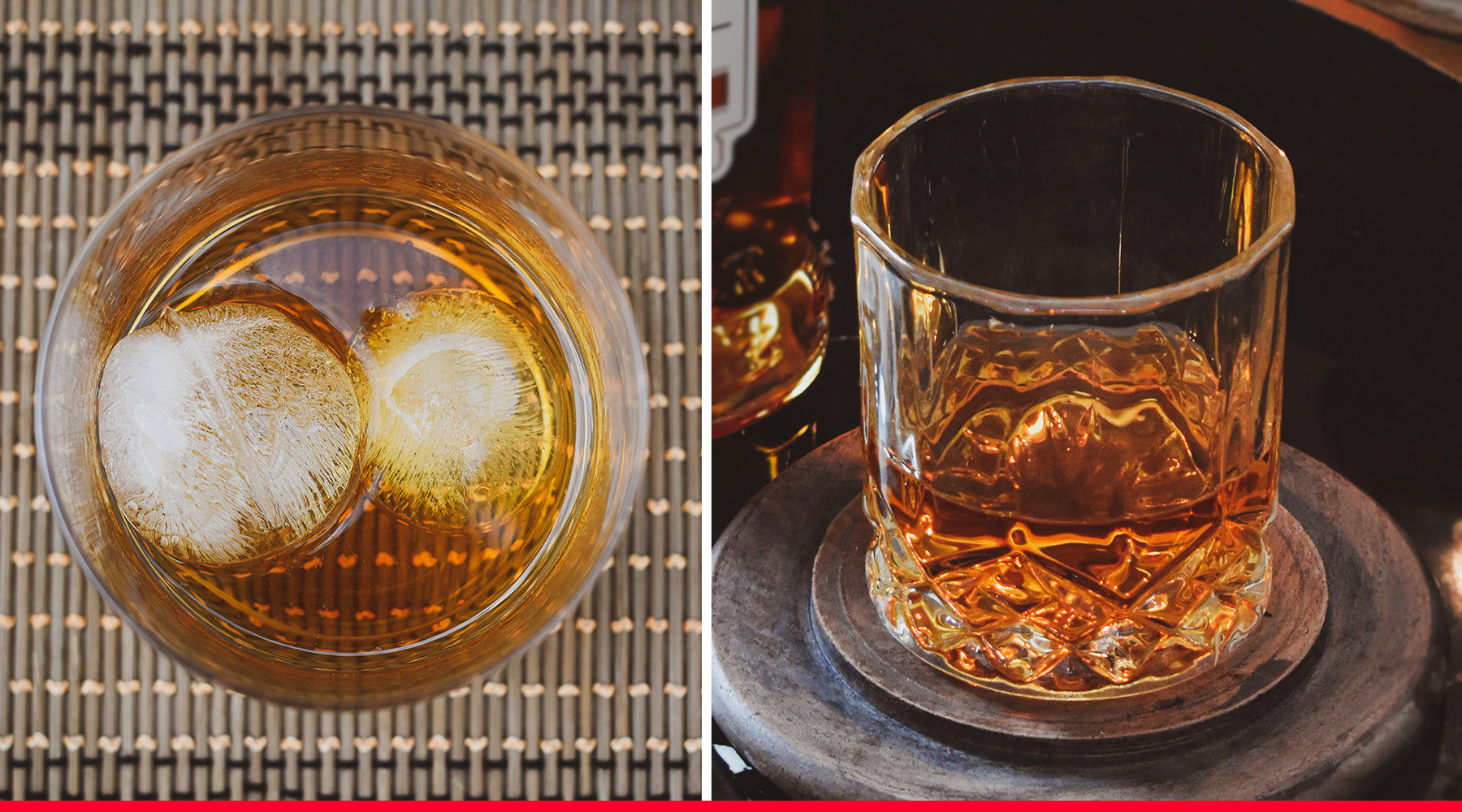Whiskey is one of the world's most consumed spirits for good reason: it's low-calorie, packed with antioxidants, and (when consumed in responsible, moderate amounts) may even promote brain health!
But what's the difference between scotch and bourbon – the two most common whiskey varieties? Well, pour yourself something neat and settle in for story time. Herewith the answer:
Bearing a name derived from the Irish-language phrase for “water of life” (raise your hand if you resonate – we sure do!), whiskey's dominating strains, scotch and bourbon, are same-same but WAY different.
They're both made out of fermented grain mashes – usually corn, barley, rye, and wheat. They're also both typically aged in charred oak barrels until they reach their desired production age (1).
What makes a bourbon
Bourbon is made primarily from corn mash. Plus, it's only produced in the United States and, according to U.S. regulations, must be made from a grain mash that is at least 51% corn and aged in new, charred oak containers (1).
Bourbon whiskey has no minimum period to be aged, but any variety aged younger than four years must have the age stated on the label. And, if it wants to the honour of being called a straight bourbon, it has to be aged for at least two years (1). As for alcohol count, bourbon comes in at minimum of 40% alcohol.
SHOP OUR WIDE SELECTION OF FINE BOURBONS HERE.
What makes a scotch
Scotch's magic resides in its malted barley and the land upon which it is made: To bear the name scotch, such whiskey must be made in Scotland. There are two main types — single malt and single grain (2).
Single malt Scotch whiskey is made with only water and malted barley at only one distillery. On the other hand, single grain Scotch whiskey is also produced at a single distillery but usually also contains other whole grains from malted or unmalted cereals (2).
Unlike bourbon, which has no minimum ageing period, Scotch must be aged for at least three years in oak containers. When the golden liquid is ready, it's distilled and bottled at a minimum of 40% alcohol (2).
SHOP OUR WIDE SELECTION OF LEADING SCOTCHES HERE.
The difference in a nutshell
These different grains they're made of give bourbon and Scotch slightly different taste profiles. Bourbons – like Teeling Single Malt – tends to be sweeter, while Scotches – like Dewar's 15 Blended Scotch tend to have a more intense smokiness.
The benefits of both
Heck, we're all mature enough to know what happens when you abuse the booze (please, drink responsibly!) so we are hesitant for you to take this as gospel, but it really is true that some research suggests potential health benefits of moderate whiskey intake:
-
Antioxidants: Yep, whiskey is packed with antioxidants like ellagic acid – bad-ass molecules that help neutralise harmful free radicals. Findings say that moderate whiskey intake may raise blood antioxidant levels (
5 ,6 ). -
Reduced uric acid levels: For those at risk of gout attacks, you'll be relieved to know that moderate whiskey consumption might just lower your risks of having an episode. (
7 ,8 ). -
Heart health: Moderate alcohol intake has shown to be correlated with reduced risk of heart disease. (Obviously, drinking too much has the opposite effect – moderation, people!) (
9 ,10 ,11 ). -
Booze brain: According to some research, moderate alcohol intake may protect against brain disorders, such as dementia – now that's a reason to pour a glass if we ever heard one! (
12 ,13 ,14 ).
If you're looking for a local whisky that won't dissapoint, be sure to check out Bain's.
h/t: healthline.com

